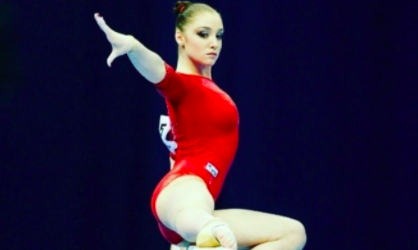Race and Sports
In the 1930s, 1940s, and 1950s, it was believed that African-Americans were not smart enough to read, study and execute plays on the field as a quarterback. African-Americans in football, however, were seen as physically superior compared to their white counterparts, who were praised for their intellectual capabilities and their smart decision-making on the court and on the field. This belief is still ingrained into the very fabric of sports today, especially in sports commentary.
In the article, “'Crafty' Vs. 'Sneaky': How Racial Bias In Sports Broadcasting Hurts Everyone” by Karen Given, she states, “ instead, what we were highlighting, in many ways, is implicit bias and the subtle ways that race actually operates, when it comes to talking about some of these historical stereotypes, about what it means to be Black and physically superior and, at the same time, intellectually inferior and on the other hand, what it means to be lighter-skinned or white"
A lot of times, sports commentators would comment on the intellectual capabilities and the intelligence of white or lighter-skin athletes. While on the other hand, describing black athletes as having the raw, untainted athletic ability or as “freaks of nature.” For further proof of racial bias existing in sports, Warren Moon, the only black quarterback in the Pro Football Hall of Fame, also talked about how racial stereotypes plagued football. Although he was a pioneer, as a black man in football, he shared how racial stereotypes made it difficult to survive in that atmosphere. In the article, “The NFL is confronting racism, but are Black quarterbacks continuing to be stereotyped?” Moon says, "If it was racism then they [Black players] wouldn't be allowed to play the game at all." He told CNN, "But the stereotype was that we can only play certain positions. And the quarterback position was the position that a lot of people didn't think we could play for different reasons, whether it was the leadership, whether it was being able to think, being able to make critical decisions at critical times. You know, be the face of a franchise, all those different things that go along with being a franchise quarterback."
Youth and Race in Sports
How deep are racial stereotypes intertwined with sports, on the youth levels?
Very.
From a survey I conducted, I asked athletes from all over the world, what racial stereotypes have they heard of? This is what I received in return:
“I play soccer and there is a common racial stereotype that black people are fast and can’t get tired.”
“African-Americans are better at sport.”
“African-American male athletes are ‘superior’ to other race athletes in sports, such as football.’’
“I play soccer and there is a common racial stereotype that black people are fast and can’t get tired.”
I was not surprised by the comments above because, as a black girl who plays sports, I have heard these all my life. There was an abundant amount of stereotypes about the black athlete, but I received even more data on racial stereotypes that I haven't heard of before:
“Only small, white European girls are considered to be successful and made for rhythmic gymnastics or figure skating.”
‘I was a competitive rhythmic gymnast, and in that sport, there is a prominent stereotype that only white women of Russian descent are “built” for the sport.’’
Now I have never heard of these two before, and I was shocked to learn that even in Europe on the youth levels, many athletes categorize and stereotype one's ability based on their nationality.
I also asked student-athletes, “Before you play your opposing team in the sport, in which you participate in, (basketball, soccer, baseball, etc.) you usually have a few moments to observe your opposing team. Click all factors that you have experienced’’
An overwhelming amount of people picked:
“Your first observation of the opposing teams’ race has led you to either a subconscious or conscious determination of their certain level of athletic ability.”
While many of these stereotypes were upsetting to see, I was not shocked, because I have heard these racial stereotypes in sports throughout my entire life.
When studying this subject, especially the way black athletes are described in the media, I couldn't help but think about an alarming historical connection. During the colonial era, pseudo-science was used to justify the enslavement of black people. It was believed that they were, on average, stronger, taller, and physically superior—due to the dimension of their body parts. In modern-day, this racial science—tied in with Darwinism—has been heavily refuted, dismantled, and shamed by contemporary biology and science. It's a strange historical connection, but it is alarming how these stereotypes and the pseudoscience about black people have eerie and shocking similarities to the ones we hear today.
It's important to establish that there is no scientific backing that a certain race is more physically superior or smarter than the other on the court. We must educate our fellow athletes and teammates, and debunk racial stereotypes in sports.
Works Cited
Given, Karen. “'Crafty' Vs. 'Sneaky': How Racial Bias In Sports Broadcasting Hurts Everyone.” 'Crafty' Vs. 'Sneaky': How Racial Bias In Sports Broadcasting Hurts Everyone | Only A Game, WBUR, 26 June 2020, www.wbur.org/onlyagame/2020/06/26/racial-stereotypes-sports-broadcast-bias.
Trenaman, Calum. “The NFL Is confronting racism, but are Black quarterbacks continuing to be stereotyped?” CNN, Cable News Network, 29 Oct. 2020, www.cnn.com/2020/10/29/sport/nfl-black-quarterbacks-cmd-spt-intl/index.html.



